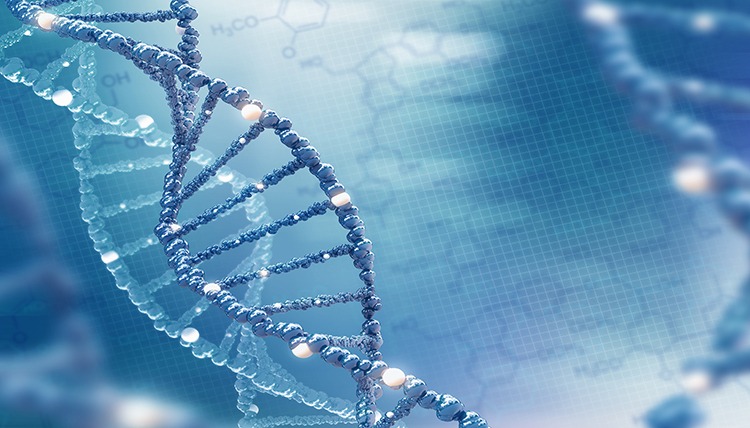CDMOs Invest in Biomanufacturing, Cell- & Gene-Therapy Manufacturing
Biomanufacturing is an active area of investment by CDMOs with several large expansions by Samsung Biologics, Fujifilm Diosynth, Boehringer Ingelheim, and Lonza. Other CDMOs (Catalent, Thermo Fisher, WuXi AppTec, AGC Biologics, and others) also are expanding, including in cell- and gene-therapy manufacturing. What’s the latest?
CDMOs are proceeding with large-scale expansion projects in both traditional biomanufacturing as well as in cell- and gene-therapy manufacturing. Industry demand stemming from increased development of biologic-based drugs continues to drive traditional biomanufacturing. Industry-wide, more limited manufacturing capacity for cell and gene therapies, although a niche area, also is a source of investment. Highlights of key expansion activity announced in 2021 to date and in 2020 are outlined below.
Expansions among large CDMOs
Samsung Biologics. Samsung Biologics is proceeding with an investment of KWR 2-trillion ($1.7-billion) for a new biomanufacturing plant, the company’s fourth, in Incheon, South Korea and for a second bio complex. The company broke ground on the new facility in November (November 2020), which, upon completion, will provide 256,000 liters in total biomanufacturing capacity. The plant will have a modular design that will allow flexibility for certain parts of the plant to begin manufacturing activities by the end of 2022, with the goal to commence full operations in 2023. The company also began negotiations in 2020 with the authorities of the Incheon Free Economic Zone to purchase additional land for a second bio complex to house a global R&D facility and allow for future biomanufacturing plants.
Earlier this year (2021), Samsung Biologics announced plans to add mRNA vaccine drug-substance manufacturing at its current facility in Songdo, South Korea with the goal of having operations ready in early 2022. The addition will enable Samsung Biologics to provide end-to-end mRNA vaccine manufacturing services from bulk drug substance to aseptic fill–finish, including labeling and packaging, as well as cold-chain storage. Separately, the company opened a new R&D center in San Francisco, California.
Fujifilm Diosynth Biotechnologies. Earlier this year (March 2021), Fujifilm Diosynth Biotechnologies selected Holly Springs, North Carolina as the location for its new JPY 200-billion ($1.9-billion) large-scale cell-culture bulk drug-substance biomanufacturing site. The facility is expected to be operational by the spring of 2025.
The company is also investing JYP 90 billion ($850 million) as part of multi-site expansion that includes: (1) in the US, doubling cell-culture production for recombinant vaccines; (2) in the UK, increasing gene-therapy production 10-fold, tripling cell-culture capacity, and doubling microbial fermentation capacity at an existing facility. The expansions are scheduled to begin operating by late 2023.
In addition, in June (June 2020), the company announced that it is investing approximately 100 billion Yen ($928 million) at its site in Hillerød, Denmark, near Copenhagen, to double drug-substance biomanufacturing capacity, expand its capabilities to include fill–finish, and enhance its current assembly, labeling and packaging services. Fujifilm Diosynth acquired the facility from Biogen in 2019 for approximately $890 million. The investment will expand production lines for bulk drug substances with the addition of six mammalian-cell bioreactors, which would bring the total to 12 x 20,000-liter bioreactors by the fall of 2023.
Boehringer Ingelheim. Boehringer Ingelheim (BI) plans to inaugurate a new EUR 700-million ($827-million) large-scale, cell-culture biomanufacturing facility in Vienna, Austria, in October (October 2021), which includes up to 150,000 L manufacturing capacity for BI products and contract manufacturing activities. The company broke ground on the facility in 2017, and the facility adds to the company’s biomanufacturing network in Biberach, Germany; Vienna, Austria; Fremont, California; and Shanghai, China.
Lonza. Lonza is proceeding with expansions in the US, Switzerland, and China. Earlier this year (2021), Lonza announced plans to invest approximately CHF 850 million ($935 million) to add two mammalian drug-substance manufacturing facilities at its sites in Visp, Switzerland and Portsmouth, New Hampshire. The expansion in Visp will add a new 27,500-square-meter large-scale mammalian drug-substance manufacturing facility. The facility is expected to be completed in 2024 with an investment of approximately CHF 650 million ($715 million). The expansion will complement the company’s existing large-scale biomanufacturing global network at its sites in Tuas, Singapore, Porriño, Spain, and Portsmouth.
Also, in August 2020, Lonza announced an expansion to its microbial manufacturing facility in Visp, Switzerland to provide mid-scale commercial manufacturing. The new facility complements existing small-scale (1,000 L) and large-scale (15,000 L) assets in Visp. The facility is expected to be operational in the second half of 2022.
In Portsmouth, the company is adding a new biomanufacturing facility for small-to-mid-volume production. The CHF 200-million ($220-million) facility will add capacity for up to eight 2,000-L single-use bioreactors to support Phase III clinical and commercial small- to mid-volume products. The facility is expected to be completed in 2023 and will complement the company’s existing single-use network at sites in Hayward, California, Slough, UK, Tuas, Singapore, and Visp.
In addition, Lonza began operations in the second quarter of 2021 at its new 17,000–square-meter mammalian-cell biomanufacturing facility in Guangzhou, China. The first batch from the site expected to be delivered later in 2021.
Thermo Fisher Scientific. Thermo Fisher has made several investments in both cell- and gene-therapy manufacturing and traditional biomanufacturing. Earlier this year (2021), Thermo Fisher added to its contract viral vector manufacturing services with the acquisition of Henogen S.A., Novasep’s viral vector manufacturing business in Belgium, for approximately EUR 725 million ($875 million).
Also in 2021, Thermo Fisher Scientific opened a new plasmid DNA (pDNA) manufacturing facility in Carlsbad, California. The site expands the company’s clinical and commercial capabilities for pDNA, which is used as a raw material to develop and manufacture cell- and gene-based therapies. The site also has capability to produce large-scale pDNA as a primary drug substance for DNA therapies.
In addition, earlier this year (2021), Thermo Fisher Scientific and the University of California, San Francisco (UCSF) formed a strategic alliance to accelerate the development and manufacturing of cell-based therapies by opening a cell-therapy manufacturing and collaboration center. Under the agreement, Thermo Fisher will build and operate a 44,000-square-foot cell-therapy development, manufacturing, and collaboration center in leased space on UCSF’s Mission Bay campus, which includes biomedical research facilities and hospitals. The site will offer clinical and commercial cGMP cell-therapy manufacturing services, along with associated technology development support, to UCSF and other partners. The center is expected to open in 2022.
These expansions build on the company’s continued investment in cell- and gene-therapy manufacturing facilities, including: (1) viral vector facilities in Cambridge, Lexington and Plainville, Massachusetts, and Alachua, Florida; (2) a new cell-therapy manufacturing facility in Princeton, New Jersey; and, (3) a new dedicated cryocenter in Weil am Rhein, Germany to provide specialized cryogenic and cold-chain supply-chain services to support clinical trials across Europe and globally. The new commercial manufacturing site in Plainville, Massachusetts, a $180-million project, will more than double the company’s commercial viral vector capacity for gene therapies and vaccines. Construction of the new 290,000-square-foot facility is expected to be completed in 2022.
In 2020, (September 2020), Thermo Fisher Scientific opened a new Bioprocessing Collaboration Center in St. Louis, Missouri, where multiple Thermo Fisher businesses jointly develop bioprocessing products, workflows, and services. The center is adjacent to the company’s biologics manufacturing facility, which had earlier doubled production capacity with a $50-million expansion
Catalent. Catalent has made several investments to increase biologics drug-substance manufacturing and cell- and gene-therapy manufacturing. In July (July 2021), Catalent announced that it will begin the first phase of a planned $100-million expansion at its facility in Anagni, Italy to add biologics drug-substance manufacturing. The initial expansion is expected to be commissioned and operational for customer projects in April 2023. Later phases of the planned expansion contemplate the provision of 16,000 liters of total flexible manufacturing capacity to enable 2,000-liter to 8,000-liter batch production scale. Catalent’s Anagni site now provides aseptic filling, secondary packaging, and oral dose manufacturing for late-stage and commercial product launches. Since Catalent acquired the facility in January 2020, it has become an European hub for COVID-19 vaccine manufacturing as well.
Also, on the biologics drug-substance side, earlier this year (2021), Catalent completed the expansion of two new suites at its biologics drug-substance development and manufacturing facility in Madison, Wisconsin. The expansion increased the number of manufacturing suites at the site to five to more than double its overall cGMP-scale capacity.
In cell and gene therapies, earlier this year (2021), Catalent acquired RheinCell Therapeutics, a Langenfeld, Germany-based developer and manufacturer of human induced pluripotent stem cells, which became part of Catalent’s Cell & Gene Therapy business. In May (May 2021), Catalent acquired Promethera Biosciences’ cell-therapy manufacturing subsidiary, Hepatic Cell Therapy Support SA (HCTS), including its 32,400-square-foot facility in Gosselies, Belgium. The facility will accommodate Catalent’s commercial-scale plasmid DNA (pDNA) manufacturing and is located on Catalent’s existing campus in Gosselies, adjacent to the Delphi Genetics building. Catalent announced the acquisition of Delphi Genetics earlier this year (2021), a spinoff from the Université libre de Bruxelles and a bioproduction CDMO with capabilities in pDNA development and cGMP manufacturing. Catalent gained its facilities in Gosselies, Belgium with its $315-million acquisition of MaSTherCell, a provider of cell- and gene-therapy development and manufacturing services in 2020.
In addition, in September 2020, Catalent announced that it was investing $130 million to add five additional Phase III through commercial-scale manufacturing suites to its gene-therapy campus in Harmans, Maryland. The campus is one of Catalent’s five gene-therapy locations in Maryland. The facilities were gained as part of Catalent’s $1.2-billion acquisition in 2019 of Paragon Bioservices, a contract provider of viral vector development and manufacturing services for gene therapies.
WuXi AppTec and subsidiaries. In May (May 2021), WuXi Biologics, part of WuXi AppTec, announced the completion of three acquisitions: (1) Pfizer’s biologics drug-substance and drug-product manufacturing facilities in Hangzhou, China; (2) CMAB Biopharma, a biologics CDMO headquartered in Suzhou, China; and (3) a former Bayer biomanufacturing site in Wuppertal, Germany. All these acquired facilities are expected to be ready for GMP manufacturing in 2021.
In addition, in March (March 2021), WuXi AppTec completed the acquisition of Oxgene, an Oxford, UK-based contract provider of discovery and biomanufacturing services for cell and gene therapies. Oxgene became a fully owned subsidiary of WuXi Advanced Therapies, WuXi AppTec’s cell and gene therapy contract testing, development and manufacturing business unit.
Charles River Laboratories. Charles River Laboratories, a CRO, made three deals to fortify its position in early development of cell and gene therapies. In June (June 2021), the company acquired Vigene Biosciences, a Rockville, Maryland-based CDMO specializing in viral vectors, in a deal worth up to $350 million ($292.5 million upfront and contingent additional payments of up to $57.5 million). With operations based in Rockville, Maryland, Vigene will geographically expand and be complementary to Charles River’s existing gene-therapy CDMO capabilities, which it expanded through its $875-million acquisition of Cognate BioServices, a CDMO specializing in cell and cell-mediated gene-therapy products, in March (March 2021). Also, in March (March 2021), Charles River acquired Retrogenix, a UK-based early-stage CRO providing specialized bioanalytical services utilizing its proprietary cell microarray technology.
Other CDMOs expand
AGC Biologics. Last month (August 2021), AGC Biologics broke ground on a new biologics manufacturing facility at its site in Copenhagen to more than double the company’s single-use bioreactor mammalian cell-culture capacity at the site. The expansion is slated to begin operations in 2023.
Also, in August 2021, AGC Biologics acquired a commercial manufacturing facility in Longmont, Colorado, previously owned by Novartis Gene Therapies. The facility adds 622,000 square feet of operations and office space primarily planned for cell-and gene-therapy activities. The facility is expected to begin full-scale operations by the fourth quarter of 2021 and is near AGC Biologics’ large-scale stainless-steel mammalian biomanufacturing facility in Boulder, Colorado. In 2020, the company purchased a commercial manufacturing facility, formerly owned by AstraZeneca, in Boulder to provide it with additional and larger-scale biopharmaceutical production capacity.
AGC Biologics also progressed further facility expansion projects in 2020 and early 2021 at its facilities in Seattle, Washington; Copenhagen; and Chiba, Japan. In addition, AGC Biologics expanded its pDNA Center of Excellence in Heidelberg, Germany for process development and manufacturing of plasmid DNA (pDNA). Also, the company announced earlier this year (2021) plans to expand its Cell and Gene Therapy Center of Excellence in Milan, Italy to increase capacities and implement viral- vector-suspension capabilities. The expansions are scheduled to begin full operation in 2022.
Dahaner/Aldevron/Precision Nanosystems. A large deal in the CDMO space is Danaher’s pending $9.6-billion acquisition of the CDMO Aldevron, a Fargo, North Dakota-based CDMO of plasmid DNA, mRNA, and proteins. The acquisition, announced in June (June 2021), will add to Danaher’s life-sciences business, which includes Cytiva (formerly GE Healthcare Life Sciences, which Danaher acquired in 2020 for $21.4 billion), Pall, and Beckman Coulter Life Sciences. Following the close of the transaction, Aldevron will operate as a standalone operating company and brand within Danaher’s Life Sciences segment. Aldevron is supplying plasmid DNA to Moderna for Moderna’s COVID-19 vaccine. Aldevron’s production of plasmid DNA takes place in its 70,000-square-foot GMP facility in Fargo. Buildout and validation of an additional 189,000-square-foot expansion has been completed for additional manufacturing capacity.
Another move by Danaher was its acquisition this year of Precision NanoSystems (PNI), a Vancouver, Canada-based company, which announced plans in August (August 2021) for a new 75,000-square-foot facility for its new global headquarters and multiple suites for manufacturing RNA therapeutics and vaccines. The new facility is slated for completion in the fourth quarter 2022.
Curia (formerly AMRI). Earlier this month (September 2021), Curia (formerly AMRI) added biologic-based drug-substance manufacturing capabilities to its small-molecule drug-substance and sterile drug-product capabilities with the acquisition of LakePharma, a San Carlos, California-based contract research, development, and manufacturing organization specializing in the production and evaluation of DNA vectors, viral vectors, cell lines, proteins, antibodies, mRNA ,and conjugates. Curia also is adding to its drug-product capabilities with its pending acquisition of Integrity Bio, a Thousand Oaks, California-based CDMO of biologics formulation development and fill–finish manufacturing services.
Avid Bioservices. Earlier this year (2021), Avid Bioservices initiated Phase II of the company’s two-phase plan to expand its overall manufacturing capacity at its Myford facility in Tustin, California. The expansion includes a second manufacturing train with upstream and downstream processing suites, known as Myford South. Based on conceptual plans, the company expects the Myford South build-out to take 18 to 24 months to complete at a cost of approximately $45 million to $55 million. The ongoing Phase I of the project, which expands the production capacity of the company’s existing manufacturing train within the northern side of the Myford facility (Myford North) by adding a second downstream processing suite, was initiated in the fourth quarter of 2020. The company estimates the first phase will take approximately 12 to 15 months to complete at an estimated cost of approximately $15 million.
Abzena. Earlier this year (2021), Abzena announced plans to add a biomanufacturing site in the US, the company’s sixth globally. The new facility will accommodate Phase III and commercial manufacturing. A phased approach to construction will initially allow four modular suites with each suite having up to two 2,000-L bioreactors, followed by the addition of two further 2,000-L suites. Additionally, the site will be equipped to handle existing and new advances in manufacturing such as continuous manufacturing and perfusion with manufacturing commencing in mid-2022.
Olon. Earlier this month (September 2021), Olon, a CDMO of active pharmaceutical ingredients (APIs), announced plans to expand microbial fermentation manufacturing capacity at its site in Settimo Torinese, Italy. The site is a center of excellence for biotechnological manufacturing.
Syngene. Earlier this year (2021), Syngene International, a Biocon subsidiary and Bangalore, India-headquartered CRO, reported it had expanded biomanufacturing capacity with the launch of a new microbial facility and expansion of its mammalian-cell manufacturing facility in Bangalore, India. The new microbial facility has two fermenters with 200-L and 500-L capacity and will enable the company to expand service offering for the manufacturing of plasmid DNA and mRNA. The expansion of the mammalian-cell manufacturing facility includes the addition of another 2,000-L single-use bioreactor.
Evotec. Just–Evotec Biologics, a technology platform company for the development and manufacture of biologics, and a wholly owned subsidiary of Evotec, a Hamburg, Germany-based drug-discovery and development company, earlier this year (2021) opened a late-stage clinical and commercial biologics cGMP manufacturing facility in Redmond, Washington. The company’s existing Seattle, Washington facility includes discovery and development labs and an early clinical phase manufacturing plant.
Separately, Evotec is constructing a new biologics manufacturing facility at its campus in Toulouse, France. The facility is expected to be fully operational in 2023.
Rentschler Biopharma. In August (August 2021), Rentschler Biopharma broke ground for a new manufacturing center, adjacent to its existing site in Milford, Massachusetts, to add 22,000 square feet of manufacturing cleanroom space and four new 2,000-L single-use bioreactors. It is expected to become operational in late 2023.
Richter–Helm. Earlier this year (2021), Richter–Helm, a biologics CDMO based in Hamburg, Germany, started construction fof a new multi-product biological manufacturing facility in Bovenau, Germany. The facility is expected to begin full-scale operations and manufacturing by the end of 2023. Richter–Helm and its parent companies, Gedeon Richter, a Budapest, Hungary-based bio/pharmaceutical company, and Helm AG, a Hamburg, Germany-based chemicals/fine chemicals distributor, will invest approximately EUR 70 million ($84 million) to triple the current production capacity of Richter–Helm and expand its existing warehouse, laboratory, and administration buildings. Richter–Helm currently operates a development facility and two cGMP manufacturing facilities for microbial production in Hannover and Bovenau, Germany, with bioreactor capacities of up to 1,500 liters. The Bovenau expansion covers installment of two additional production trains with bioreactor capacities of 300 liters and 1,500 liters. The production site will reach a total area of about 10,000 square meters and includes all necessary utilities and infrastructure, such as quality-control labs, warehousing, and technical areas.
New and recently launched CDMOs
Resilience. Resilience, a recently launched manufacturing and technology company, made several acquisitions in 2021 to build capabilities in biologics drug-substance and cell-and gene-therapy manufacturing. Resilience was launched in November 2020 with initial capital of $800 million with a specific focus on manufacturing innovation, including for new modalities. Its executive leadership includes Patrick Yang, Ph.D., Vice Chairman, Resilience, and former Executive Vice President and Global Head of Technical/Product Operations, Roche/Genentech, and Rahul Singhvi, Sc.D., CEO, and Director, and former Chief Operating Officer of Takeda’s Vaccine business, and former President and CEO of Novavax, a Gaithersburg, Maryland-based vaccine company.
In April (April 2021), Resilience acquired Ology Bioservices, an Alachua, Florida-based biologics CDMO. Ology Bio’s manufacturing capabilities include cell-and-gene therapies, live-viral vaccines and vectors, oncolytic viruses, plasmids, and monoclonal antibodies. Also in April (April 2021), Resilience acquired two commercial manufacturing facilities in North America, including a facility from Sanofi. The acquired facility from Sanofi is a 310,000-square-foot plant in Boston, Massachusetts, with multiple 2,000-L bioreactors capacity and multiple downstream processing trains. The company also purchased from an undisclosed partner a 136,000-square-foot plant in Mississauga, Ontario providing upstream and downstream processing and aseptic fill–finish.
In July (July 2021), Resilience agreed to acquire a clinical and commercial manufacturing facility in Durham, North Carolina, from bluebird bio for $110 million. The 125,000-square foot facility manufactures lentiviral vectors, a component for cell and gene therapies.
Arranta Bio. Arranta Bio, a CDMO focused on live biotherapeutic products and the human microbiome and launched in 2019, is adding a new 130,000-square-foot facility in Boxborough, Massachusetts to complement its existing facilities in Watertown, Massachusetts and Gainesville, Florida. The Boxborough site will be developed in phases, and work on the first two phases has begun. Total investment in Boxborough is expected to exceed $150 million. With the first phases of construction underway, start-up of GMP suites is expected early in 2022.
The Boxborough facility will bring the total manufacturing capacity at Arranta to over 230,000 square feet. Arranta invested more than $100 million in 2020 to expand its process development and early clinical GMP supply capacity at its site in Gainesville, Florida and to establish a multi-product, commercial-ready manufacturing facility in Watertown, Massachusetts. The Watertown facility was completed at the end of 2020 and is now being commissioned to supply live biotherapeutic products to microbiome innovator companies.
Bacthera. Earlier this year (2021), Bacthera, a CDMO of live biotherapeutic products and a joint venture between Lonza and Chr. Hansen, was granted manufacturing licenses for its drug-substance manufacturing facility in Hørsholm, Denmark and its drug-product manufacturing facility in Basel Switzerland, respectively by Swiss and Danish regulatory authorities. The licenses mean Bacthera is ready to supply live biotherapeutic products, a new therapeutic class based on live microbes.
Dendreon. In 2021, Dendreon Pharmaceuticals, a Seal Beach, California-based bio/pharmaceutical company of cell therapies, formed a CDMO business. The company’s 180,000-plus-square-foot manufacturing facility in Seal Beach will serve as its contract manufacturing services hub. Its Seattle, Washington facility will serve as the process development and manufacturing sciences center.
CDMOs specializing in cell- and gene-therapy manufacturing
Viralgen. In June (June 2021), Viralgen, a CDMO of adeno-associated virus-based gene therapies and part of Bayer, opened a new commercial production facility in San Sebastian, Spain. Equipment validation and facility certification activities will continue throughout 2021 with the first commercial-grade 2,000-L batches able to be released by mid-2022. Viralgen was formed in 2017 as a joint venture between Asklepios BioPharmaceutical (AskBio), a Research Triangle Park, North Carolina-based clinical-stage gene-therapy company, and Columbus Venture Partners. Viralgen was acquired by Bayer upon closing of Bayer’s $4-billion acquisition of AskBio in 2020.
Genezen. Genezen Laboratories, an Indianapolis, Indiana-based cell- and gene-therapy CDMO of early-phase process development, viral vector production, and analytical testing services, is planning a 75,000-plus-square foot cGMP-compliant lentiviral vector production facility. The first phase will see the construction of a 25,000-square-feet site that will include a process development lab expansion, scheduled for completion in the autumn 2021. The remaining build-out phases of the facility will be completed in early 2022.
Yposkesi. Yposkesi, a Corbeil-Essonnes, France-based CDMO specializing in cell and gene therapies, is investing EUR 58 million ($70 million) to build a second commercial cell- and gene-therapy manufacturing facility. Earlier this year (2021), SK pharmteco, a Rancho Cordova, California-headquartered CDMO, took a majority equity stake in Yposkesi. Construction began in May (May 2021) on a site adjacent to Yposkesi’s current 5,000-square-meter commercial facility, which operates multiple manufacturing suites for bulk drug substances (up to 1,000 L) and fill–finish. By 2023, the company says equipment consisting of several 1,000-L bioreactors, chromatography and purification skids will be installed.
Vibalogics. Earlier this year (2021), Vibalogics, a CDMO of oncolytic viruses, viral vector vaccines, and viral vectors, initiated the first stage of a planned $50-million investment at its cGMP facility in Cuxhaven, Germany facility to expand early-to-late phase clinical virotherapy manufacturing capacity. The investment includes expanding the facility to an overall 100,000 square feet to service process development, drug-substance manufacturing, drug-product fill, quality control, batch release and stability studies. Vibalogics expects the initial site expansions to be in place and ready for operations by January 2022, with further plans set to continue in 2022 for ongoing growth of the location.
The upgrade of the Cuxhaven facility follows the company’s expansion in the US. The company is in the middle of a three-year investment plan, which includes the build-out of a 140,000-square-foot late-stage and commercial facility and new global headquarters in Boxborough, Massachusetts. The US project will total $150 million, covering redevelopment of the site, new equipment and the recruitment of personnel.
VIVEbiotech In 2021, VIVEbiotech, a Donostia, Spain-based CDMO developing and manufacturing lentiviral vectors, opened a new facility for the manufacture of lentiviral vectors for cell and gene therapies. The expansion involved the installation of a bioreactor and seven cleanrooms set up for lentiviral-vector manufacturing.







